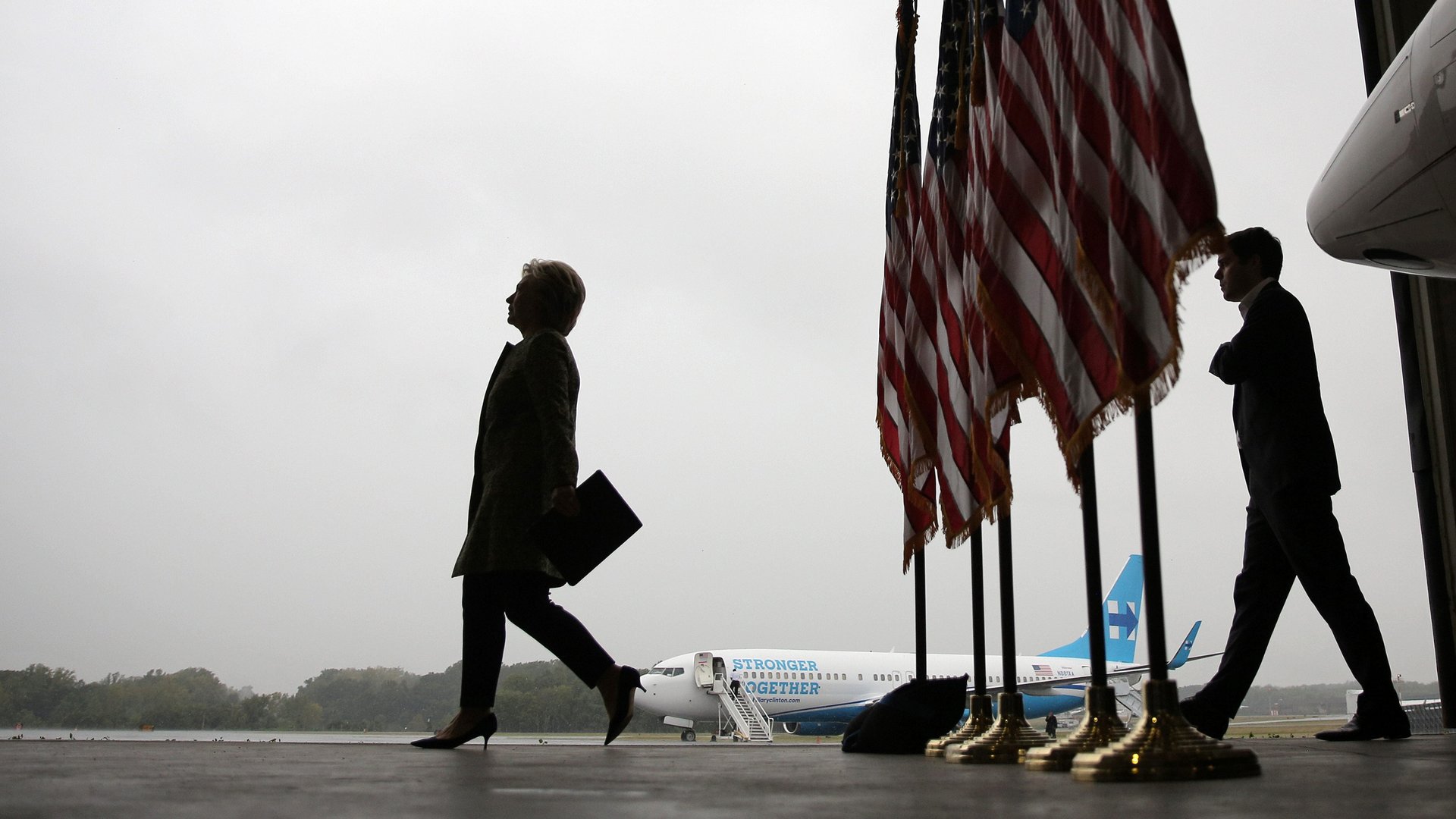Millennials have come of age amidst recessions, populism and closing borders. What future do we have?
At 1 am on election night, I take the elevator down from Quartz’s New York newsroom. I’ve just filed a piece—only slightly tongue in cheek—about Brexit leader Nigel Farage and US president-elect Donald Trump as the new Reagan-Thatcher axis. It’s all a bit much to take in. I need a moment on my own.


At 1 am on election night, I take the elevator down from Quartz’s New York newsroom. I’ve just filed a piece—only slightly tongue in cheek—about Brexit leader Nigel Farage and US president-elect Donald Trump as the new Reagan-Thatcher axis. It’s all a bit much to take in. I need a moment on my own.
As I stare down Sixth Avenue, I wonder what future there is for me—a progressive 25-year-old Briton—and for others in my generation who believe in a world of open borders and shared ideas.
It feels as if we’re at the tail end of liberal history. The 1990s promises of Tony Blair’s Britain and Bill Clinton’s America, a post-Cold War world, all passed us by in childhood. Now we have witnessed the rise of Trump, Vladimir Putin, Rodrigo Duterte, Narendra Modi and perhaps Marine Le Pen to come. My first real political memories begin with 9/11; my teens were dominated by a series of Middle Eastern wars. The only economy I’ve ever worked in was sputtering in the aftermath of the worst economic crisis since the Great Depression.
And since I turned voting age, I’ve yet to experience an election that has gone my way. Vapid PR man David Cameron squeaked home in 2010 and managed to discredit his well-meaning coalition partners, the Liberal Democrats, into obliteration. I left to work and study in Russia in 2011, and was surrounded by the biggest pro-democracy protests since the fall of the USSR. But the protests, in time, were dismantled, their leaders imprisoned or politically neutered. President Vladimir Putin coasted to victory in 2012.
Then, in 2015, Cameron somehow bested all the polling wonks out there and won a majority. He was too cowardly to fight off the right wing of his party pushing for the UK to leave the European Union. But I still thought things would be okay—surely, surely, the British people wouldn’t be stupid enough to vote for Brexit?
And therein lies the problem: In many ways, I’m the issue with today’s cosmopolitan establishment. In my adopted home of New York, I don’t know a single person who voted for Trump. Back in London, I can count the number of Brexiteers I know on one hand. All the rhetoric of global politics is mediated along the way by people like me with privileged, highly educated backgrounds. And I don’t know what to do about it.
Culturally, I adapted perfectly to globalization. With pan-European parents and a multi-lingual background, I often felt ill at ease in Britain but at home wherever my feet landed. I moved to Brussels and reveled in drinks and dinners where every guest is from a different country. We ribbed each other over cultural differences, knowing we shared the same core beliefs. We had big dreams about extending this multicultural love-in to the rest of the world. In fact, they didn’t even seem like dreams; they seemed inevitable.
But now this vision looks like a brief blip in history. Economic globalization will continue, and the elite will continue to flit easily between borders. But the idea of bringing that kind of freedom and opportunity to all—the hopes by which we legitimized our good fortune—seems increasingly unlikely. It’s time to face the realization that those dinners in Brussels weren’t glimpses of a future the whole world would soon embrace. They were ephemeral. Millennials believe a global economy can help the world, but it seems the world doesn’t want that kind of help. And we just don’t understand that at all.
I know that writing this piece is self-indulgent. Just being able to make this complaint is a sign of my immense privilege. The US election and Brexit and the other global rebukes to progressive agendas aren’t about me. They’re about those who were overlooked by the likes of me—the “flyover” states where Clinton didn’t bother to campaign; the British Midlands, sneeringly consigned by Londoners to the “North of England,” who voted to leave the EU; France’s former industrial heartlands, who will vote for Le Pen.
Brexit was easy to blame on disgruntled old people stealing the futures of the young. But that wasn’t entirely fair then—and it’s definitely not true of the US election now. Yes, there are a lot of racists in the US. Yes, there are “deplorables.” But ultimately, many Trump voters are people who have suffered while others have prospered. And most saddening of all is that now, as with Brexit, they have been conned into a decision that will only further impoverish them.
The optimist in me still thinks things will get better one day. But there aren’t many straws left to clutch at.